Americas
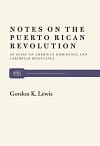
This essay on Puerto Rico analyzes the deepening crisis in American capitalism and how it inevitably affects Puerto Rico. Essentially, Lewis asks and seeks to answer three questions: What is the nature of Puerto Rican society after a decade of dramatic and traumatic change? What should be the strategy of freedom? What can be, ought to be, the nature of the new Puerto Rican society, once it is released from American rule? | more…

Within a year after the triumphal entry into Havana at the beginning of 1959, Che Guevara began to set down the history of the guerrilla war. Fearful that the events would “dissolve into the past” and that an important part of the history of America would be lost, he urged other leaders of the Revolution to do the same, asking only “that the narrator be strictly truthful.” | more…
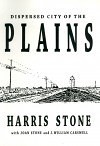
Town-building in the Great Plains gets a fresh examination in Harris Stone’s final book. Form and consequences of the inhabitation of the plains landscape are explored, from the rural roads and farms to industrial parks. Beautifully hand-lettered and illustrated throughout, this thought-provoking work will appeal to architects, planners, historians, cultural geographers, and anyone interested in the interplay between people and vernacular form. | more…

In my opinion, American capitalism no longer has any use for, let’s say, 40 percent of the population. These are the descendants of folks who were brought over here in one way or another during the period of capital accumulation. They’re now superfluous human beings. | more…
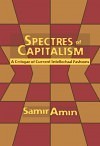
Samir Amin, one of the most influential economists today, has produced another groundbreaking work. Spectres of Capitalism cuts through the current intellectual fashions that assume a global capitalist triumph, taking the occasion of the 150th anniversary of Marx and Engels’s classic tract, the Communist Manifesto, to focus upon the aspirations of the destitute millions of the post-Cold War era. | more…
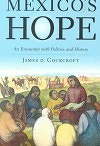
Mexico’s Hope tells the dramatic story of the making of modern Mexico. In the course of providing compelling analysis of the causes for the vast divide between Mexico’s rich and poor, James Cockcroft illuminates the stark contrast between the country’s corrupt political system and its people’s democratic aspirations. | more…
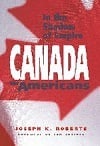
In the Shadow of Empire: Canada for Americans invites Americans to take a closer look at their neighbor to the north, challenging the commonly held view that Canada is just like the United States. American-born but a longtime resident of Canada, Joseph K. Roberts brings into focus every major feature of Canada’s politics, from the distinctiveness of a society that does not stigmatize government action to the struggles of indigenous peoples and the quest of French-speaking Quebec for autonomy. | more…
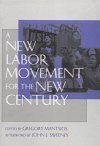
“Labor has finally awakened from a long, deep sleep.” So declared one observer after the victory of John J. Sweeney’s “New Voice” slate in the 1995 contest for leadership of the U.S. trade union federation, the AFL-CIO. Sweeney’s team promised to make organizing its top priority, and new stirrings in labor have brought unprecedented media attention. With a surprisingly popular and victorious nationwide strike at United Parcel Service in 1997, hopes have risen for a new labor movement. | more…

This collection offers the best scholarly work emerging at the intersection of gender theory and Latin American studies. The essays analyze the gendered politics of state power, language, culture, history, social movements, human rights, and knowledge. Outstanding scholars and activists map the debates that have broken new and fertile ground in Latin American gender studies, criticizing short-comings and speculating on future directions. In their examination of everyday struggles over gender politics, the contributors illustrate the link between political action and conceptual debates. Innovative and challenging, this book will generate discussion in a wide range of fields. | more…
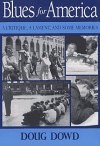
Blues for America combines an historical critique of the “American Century” with journalistic reports and personal anecdotes. Doug Dowd, an economics professor and long-time troublemaker, traces the socioeconomic history of our country decade by decade in a style reminiscent of Dos Passos’ U.S.A. Blues for America is an engrossing read, filled with incisive observations and biting humor. | more…
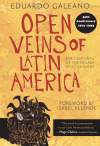
Since its U.S. debut a quarter-century ago, this brilliant text has set a new standard for historical scholarship of Latin America. It is also an outstanding political economy, a social and cultural narrative of the highest quality, and perhaps the finest description of primitive capital accumulation since Marx. | more…

Over the last few years, I have asked hundreds of college students, “When was the country we now know as the United States first settled?” | more…











